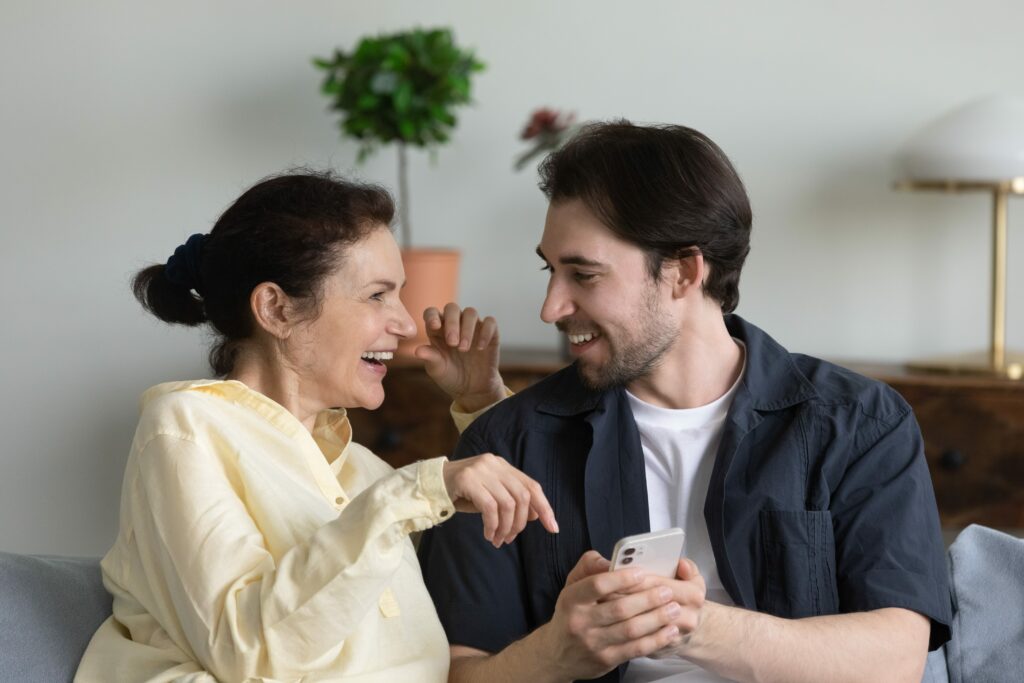Jump to section
How we can help
We have one of the largest dedicated Court of Protection & deputyship teams in the country. We offer an efficient, personal and tailored service of a quality that few firms undertaking this work are able to provide.
Our team of highly regarded Court of Protection lawyers, based in Kent, have many years of experience between us, and we regularly receive direct referrals from other solicitors, barristers and professionals.
We provide straightforward, practical advice and have the skills and experience to ensure that the right decisions are made. We liaise with family, friends and care professionals and handle each situation with a high level of care and sensitivity
We have particular experience in dealing with issues related to brain and birth injuries and managing large personal injury or clinical negligence awards. We work closely with our specialist Personal Injury and Clinical Negligence teams. We also manage the affairs of many elderly clients with dementia.
Our specialist team of Court of Protection lawyers can help to:
- Explain the Court of Protection rules and options and guide you through the entire process
- Help you apply to have a deputy appointed for a relative or friend
- Act as a deputy for you, a relative or friend who lacks capacity
- Help existing deputies make applications (e.g. for gifts, wills and property transactions)
- Offer practical legal advice in your later life
- Prepare a Lasting Power of Attorney and advice donors and attorneys
- Set up a personal injury trust
- Act in contentious litigation situations e.g. where an application is contested
- Act as an expert witness for litigation lawyers when considering past and future professional costs.
Accreditations & awards




A calm, considered and unflappable approach, old school in the very positive meaning of the phrase. The opposite of fly-by-night short-termists, solid, trustworthy, personal and a significant cut above the others because of this. Clients and professionals are served by the company, not the other way around, just as it should be.
The role of the Court of Protection & deputies
When an individual lacks the capacity to manage their financial affairs, they may need a Court of Protection lawyer to assist with important financial decisions. A Court of Protection lawyer can help a person to make these decisions, should they lack the ability to do so themselves.
This may be due to learning difficulties, old age, mental health problems or due to the result of sustaining an acquired brain injury following an accident or medical negligence.
The Court of Protection makes decisions relating to the property, finances and welfare of people who lack mental capacity. The Court of Protection can delegate some of its authority by appointing a deputy. A Court of Protection lawyer is an expert who can assist you with Court of Protection matters.
He is very calm, thoughtful, sympathetic and is very reassuring.
You might need a Court of Protection lawyer if:
- You want a family member, friend or lawyer to take over the management of your financial affairs either now or in the future
- You are concerned about a loved one’s capacity to manage their affairs
- You are responsible for managing someone’s financial affairs (as a deputy or because you have Power of Attorney)
- You are concerned about the way someone’s affairs are being managed
- You are a personal injury and clinical negligence lawyer who needs an expert witness.
Our team of highly qualified Court of Protection lawyers, based in Kent, can put safeguards in place to ensure decisions are made in the best interests of a person who lacks capacity to manage their affairs. Thomson Snell & Passmore’s Court of Protection lawyers act with sensitivity and professionalism at all times.
What is the Court of Protection?
The Court of Protection is a Court based in London which was created under the Mental Capacity Act 2005.
The Court has the authority to make decisions about property and financial affairs, and the personal welfare of people who do not have the capacity to make those decisions for themselves.
The Court can exercise its authority by making an order about a specific issue, or by delegating authority to make decisions to another person i.e. a deputy.
The Court will deal with any matters that are outside the scope of the deputy’s or attorney’s authority. It can appoint a new deputy, or discharge an existing one if the person regains capacity.
What is the Office of the Public Guardian?
The Office of the Public Guardian (OPG) supports the Public Guardian, which is a role created by the Mental Capacity Act. The OPG’s main function is to supervise deputies (and attorneys appointed under a Lasting or Enduring Power of Attorney) who are making decisions for persons who lack capacity. It therefore has a distinct role from the Court of Protection, which has judges who hear cases, provide authority to deputies, and make decisions.
The duty of the OPG is to protect the interests of those people in England and Wales who lack capacity to manage their own financial affairs, or personal welfare. It has the following key
responsibilities:
- Maintaining a register of deputies and attorneys
- Supervising all deputies appointed by the Court of Protection
- Obtaining and approving annual accounts and reports submitted by deputies
- Arranging visits to deputies and persons who lack capacity
- Registering Enduring and Lasting Powers of Attorney
- Investigating concerns of financial abuse by attorneys and deputies and reporting to the Court of Protection.
What is a deputy?
A deputy is a person or, (for property and affairs cases) a trust corporation appointed by the Court of Protection to make decisions on behalf of someone who lacks the capacity to make the decision in question, themselves. The deputy can be a relative of the person concerned, or a professional such as a lawyer.
In matters relating to a person’s finances, a deputy is usually given wide powers to manage the person’s property and day to day financial affairs, and act as his or her agent. Any decisions made, or action taken, by the deputy must be made in the person’s best interests.
Who can be a deputy?
Anyone over the age of 18 can be a deputy, provided the Court of Protection considers them an appropriate person to be appointed. Our trust corporation, the Thomson Snell & Passmore Trust Corporation, can also act as a professional deputy.
Prospective deputies need to complete a declaration disclosing material facts about their personal history, which the Court will consider when making their decision. Prospective deputies must also give a personal undertaking to the Court confirming that they will apply the principles of the Mental Capacity Act 2005, the Code of Practice, and make other commitments regarding their duties as a deputy.
Where appropriate, two or more deputies can be appointed to act together or individually.
A decision to apply to be appointed as a deputy for someone is a matter for careful consideration, and not a commitment to be entered into lightly.
When is a lawyer appointed as a deputy?
Anyone can be appointed as a deputy so long as they are considered by the Court as a suitable person to act in this important role. There are however occasions when the Court, or indeed family members, will prefer the appointment of a solicitor. Examples are where there is a significant damages award to administer or where there is disagreement amongst family members.
In damages cases it is usually possible for the solicitor’s costs for acting as the deputy to be recovered as part of the overall claim.
What are the main duties of a deputy?
The main role of a financial deputy is to manage the property and day to day financial affairs of the person who lacks capacity, for the benefit of that person. A deputy must act in that person’s best interests within the scope of the authority given by the Court of Protection, and is also accountable to the Court of Protection and Public Guardian. In practice, a deputy’s main responsibilities will include:
- Paying care costs and other expenses
- Collecting benefits, pensions and other assets
- Managing investments and property
- Completing an annual report showing the funds received and spent on behalf of the person concerned
- Preparing an annual tax return.
What is the difference between a Lasting Power of Attorney (LPA) and a Court of Protection Deputyship?
A Lasting Power of Attorney is made by the person before he or she loses capacity. A deputy is appointed by the Court of Protection after the person loses capacity.
What happens if someone loses capacity but has not made a Lasting Power of Attorney (LPA) in advance?
An application can be made to the Court of Protection for a deputy to be appointed. Deputyship applications may be made by relatives or close friends of the vulnerable person, where the relative or close friend is the proposed deputy. Where there are no friends or family who are able or willing to act, or the circumstances are complex (perhaps a high value estate is involved, or relatives do not see eye to eye), an application can be made for the appointment of a professional deputy, such as a solicitor.
It is possible to appoint both property and affairs deputies and health and welfare deputies. The appointment of a financial deputy tends to be much more common than the appointment of a health and welfare deputy.
Where someone lacks capacity to make decisions about their finances, the only way in which decisions can be made on their behalf, in the absence of them having made an earlier LPA, is by appointing a deputy under a financial deputyship order. This order gives them the correct authority to act on behalf of the other person.
How do I apply to the Court of Protection?
If there is medical evidence to suggest that an individual lacks capacity to make their own decisions and there is no Enduring Power of Attorney (EPA) or Lasting Power of Attorney (LPA) in place, an application can be made to the Court of Protection for a deputy to be appointed. The application could be made by a family member, friend, professional, or in some cases the local authority.
However, even if there is an EPA or LPA in place, there are situations where it might still be appropriate and in the person’s best interests for a deputy to be appointed instead – such as where there is going to be a damages award.
To make an application, Court of Protection forms will need to be completed and sent to the Court. These forms request information about the individual’s financial circumstances, the extent of the authority sought, and details about the proposed deputy to ensure that they are suitable.
Links to the forms and further guidance can be found online at www.gov.uk/courts-tribunals/court-of-protection.
Alternatively, assistance can be sought from a legal professional to help with the application. In nearly all applications relating to a person’s financial and property affairs, the Court will allow for the fees of the professional to be paid from the funds of the person to whom the application relates.
If there are no firm proposals as to who should take on the role of a deputy, the Court can appoint someone from their panel of professional deputies.
A medical certificate, completed by a doctor or other suitable professional, must also be provided to the Court.
There will be a £385 application fee unless the individual is eligible for a fee exemption or reduction.
Will I have to go to Court?
In the majority of cases, provided there have been no objections to the application, the Court of Protection will usually make a decision based on the papers provided, without the need for a hearing.
If a hearing and attendance at Court is required, this would usually be as a result of someone raising an objection to the proposed deputy, or because of a dispute or query over the evidence on the person’s capacity. Alternatively, the Court may want further information or evidence on the application and in order to gather this information, give directions for the parties to attend in person.
All parties will be notified of the need for a hearing.
One of the best firms I work with - they are clear in their instruction and handling of cases, are very professional and efficient, and work hard for their clients and achieve very good results.
Appointing a deputy
We can act as a Court of Protection deputy for someone who doesn’t have the capacity to manage their affairs. Alternatively we can assist you with an application to appoint a family member as deputy. Our award winning team is nationally recognised and one of the largest and most experienced in the country.
When is a deputy appointed?
A deputy is appointed by the Court of Protection to manage the affairs of someone who lacks the mental capacity to make decisions about their property, financial affairs and other matters.
A deputy can be:
- A friend or relative
- The local authority
- An experienced solicitor or a Trust Corporation, such as the Thomson Snell & Passmore Trust Corporation.
The Court appoints a deputy only when someone lacks capacity, and usually where there is no Enduring Power of Attorney (EPA) or Lasting Power of Attorney (LPA) in place. However, even if there is an EPA or LPA in place, there are situations where it might still be appropriate and in the person’s best interests for a deputy to be appointed instead – such as where there is going to be a damages award.
The team at Thomson Snell & Passmore all works diligently to ensure communication is replied to promptly. They have built a good working relationship with their client and his family which ensures the smooth running of daily life which was of utmost importance to us.
Can a deputy make gifts of money?
An order appointing a deputy for a person who lacks capacity will usually authorise the making of small gifts to individuals or charities as well as to maintain someone for whom the person may be expected to provide. However, this does not confer an unfettered discretion to dispose of a person’s property. Any decision to make a gift must be in the person’s best interests.
Further, the order will only allow gifts which are not unreasonable having regard to all the circumstances and, in particular, the value of the person’s assets. Gifts to individuals can only be made on important occasions (such as a birthday, wedding, or anniversary), to someone who is related to or connected with the person. Gifts to charities can only be made to organisations the person may have been expected to support.
Although a deputy’s authority to make gifts is limited, the Court of Protection has authority to make more substantial gifts. However, a formal application will need to be made explaining why the proposed gifts are in the person’s best interests, setting out their affordability and the interests of any persons potentially prejudiced by the proposals.
Can a deputy decide where someone lives?
A deputy appointed to manage a person’s property and financial affairs cannot decide where someone should live. Such decisions would usually be left to the person’s family, medical practitioners and/or local authority.
A health and welfare deputy may have authority to make this decision. However, the appointment of a health and welfare deputy is rare, and if there is no such person appointed and a disagreement arises as to where someone should live, an application should be made to the Court of Protection for a decision.
How our Court of Protection lawyers can help with deputyship matters
- The Thomson Snell & Passmore Trust Corporation can act as professional deputies to administer the property and financial affairs of the person who lacks capacity
- Assist with applications to the Court of Protection for a relative or friend to be appointed as a lay deputy
- Support lay deputies through the decision making process by advising on legal matters
- Advise and assist deputies with applications to the Court of Protection for statutory wills, gifts, and property transactions
- Provide an expert witness service
- Help you to understand the duties of a Court of Protection deputy.
Why choose Thomson Snell & Passmore to act as a deputy?
We have one of the largest specialist Court of Protection teams in the country, offering a personal and tailored service that few firms undertaking this work can provide.
We have a great deal of experience in this area of practice. We have a dedicated team of lawyers specialising in Court of Protection work. Partners in the firm, both personally and as Directors of our Trust Corporation, act as the professional deputy in over 240 cases. Our Court of Protection team has been ranked by Chambers and The Legal 500, two independent legal directories, in the top tier for Court of Protection work in the UK. We are one of only three firms in the country to achieve this status.
Brian Bacon is ranked in Chambers UK as a Band 1 ‘Leader in their Field’ in Court of Protection Property and Affairs work. Partner Rosie Hamlyn was also named as a ranked lawyer. Partner Catherine Fuller is named as a ‘leading individual’ in The Legal 500.
We are highly regarded experts, with many years of experience between us and we regularly receive direct referrals from other solicitors, barristers and professionals.
Our deputyship team provides straightforward, practical advice and have the experience to ensure we secure the best possible outcome for a vulnerable or elderly person who lacks mental capacity.
We have particular experience in dealing with issues for severely disabled clients (including people with brain injuries and birth injuries) and managing large personal injury or clinical negligence awards. We also manage the affairs of many elderly clients with dementia.
Further help
A long established and respected practice in Court of Protection matters. The lawyers have a wealth of experts available to assist in any matter. During the pandemic the service and speed has been seamless even though at times they have been working remotely. Catherine Fuller – an exceptionally good deputy who keeps me updated an a regular basis. Catherine will always respond very quickly to any questions or concerns that I raise. Even more importantly as a person Catherine is exceptional. She is a kind and considerate person and always considers our viewpoint as well as her legal obligations.
Lasting Powers of Attorney (LPAs)
Lasting Powers of Attorney offer security and peace of mind for you and your family.
What is a Lasting Power of Attorney (LPA)?
We all hope to go on running our lives for as long as we can, but need to plan ahead for a time when we may need help in making decisions.
A Lasting Power of Attorney is a legal document where you appoint one or more people (the attorney) to act on your behalf, in circumstances where you no longer have capacity to make decisions yourself. You can decide who you appoint, what powers they have and specify any wishes you want followed.
Having a Lasting Power of Attorney in place can avoid the expense and the potential difficulties of Court of Protection Deputyship if you later need someone to act on your behalf.
There are two types of LPA:
- Property and financial affairs
- Health and welfare.
Under a property and financial affairs LPA, your attorneys can make decisions on your behalf such as buying and selling property, opening and closing bank accounts, dealing with your investments, managing your day to day finances, and claiming benefits and pensions. This type of LPA can be used at any time, even if you still have capacity. In those circumstances, it should be used by your attorneys with your consent.
A health and welfare LPA can only be used if you have lost capacity to make health and welfare related decisions. It enables your attorneys to make decisions about where you should live, the type of care you receive and day-to-matters such as your daily routine, diet, visitors and the social activities which you participate in. If social services are involved in decisions about where you may live and your care in the future, then it can be particularly helpful to have an attorney who is authorised to make decisions of this type for you. Your attorney can also give consent to or refuse medical treatment on your behalf if you give them this specific authority. This could include making a decision as to whether or not you receive life-sustaining treatment in certain circumstances, giving you peace of mind that someone you trust and is aware of your wishes, is acting on your behalf. If you choose not to give your health and welfare attorney this particular authority then decisions about life-sustaining treatment would be made by the doctors and other professionals overseeing your care at the time, in your best interests and subject to any Advance Decision you may have made.
You can create both types of LPA or just one type and not the other. Ensuring an LPA is in place will mean that decisions can be made quickly and by someone you trust if you ever lose capacity.
Thomson Snell & Passmore is one of the standout Court of Protection teams in the country. They offer sound, down-to-earth, practical advice which clients really appreciate.
How do you go about putting a Lasting Power of Attorney in place?
A Lasting Power of Attorney is an extremely important document and requires careful preparation and sound legal advice. Download our complete Lasting Powers of Attorney pack containing comprehensive information and the relevant forms.
Who can be appointed as an attorney?
You can appoint a friend, a relative or a solicitor as your attorney and they must be over 18. As with deputyships, our trust corporation, the Thomson Snell & Passmore Trust Corporation can act as a professional attorney.
Rosie is an absolute star and it’s always been very reassuring to know that our affairs have been in such capable hands.
How many attorneys can I appoint?
You need to appoint at least one attorney and up to a maximum of four. If you choose more than one, you will need to decide whether you want your attorneys always to act together (a joint appointment) or whether they can also act separately (a joint and several appointment). A joint several appointment is the most flexible option. You can also choose to appoint a replacement attorney if your first choice is unable to act for any reason.
What are an attorney’s duties?
Your attorney has formal legal duties and must follow the principles set out in the Mental Capacity Act 2005 and the Code of Practice. Your attorney must act in your best interests and take account of your wishes, feeling and beliefs.
You can apply conditions and restrictions on the use of the LPA and can also include guidance as to how you would expect your attorney to act.
How our Court of Protection solicitors can help with a Lasting Power of Attorney
- Advise on all aspects of a Lasting Power of Attorney, including the capacity required to make it, and the options available
- Deal with the registration process (without which a Lasting Power of Attorney cannot be used)
- Provide guidance to attorneys where they are involved in creating or acting under a Lasting Power of Attorney
- Manage objections and disputes over the appointment or conduct of attorneys
- Assist attorneys with applications to the Court of Protection for statutory wills, gifts, and the appointment of trustees.
Our Court of Protection expertise
We have one of the largest specialist Court of Protection teams in the country, offering a personal and tailored service that few firms undertaking this work can provide
Our specialist Court of Protection solicitors give straightforward practical advice and deal with matters sensitively
Our lawyers are highly regarded experts, with many years of experience between them and regularly receive direct referrals from solicitors, barristers and other professionals.
Further help
www.gov.uk/courts-tribunals/court-of-protection
www.gov.uk/government/organisations/office-of-the-public-guardian
www.headway.org.uk
www.babicm.org/
www.alzheimers.org.uk/
The firm has a really brilliant Court of Protection team that I always recommend as a first choice.
Statutory wills, gifts & other applications
Our Court of Protection team is one of the most experienced in the country in advising deputies and attorneys on formal applications for gifts, wills and property transactions, such as applying to the Court for authority to replace a co-owner of a property who has lost capacity.
When should you make an application to the Court of Protection?
If you are acting as a Court of Protection deputy or have Power of Attorney for someone else, you may want to consider making important decisions on their behalf such as:
- Making a will
- Making a major lifetime gift
- Withdrawing a large one-off sum (e.g. for the purchase of a property)
The Court of Protection exists to safeguard the property, financial affairs and welfare of those who lack capacity to make decisions for themselves, and only the Court of Protection can authorise certain decisions. Many factors influence the Court’s decision and need to be taken into account when preparing an application: the interests of the person who lacks capacity is paramount; other people can be affected and may not agree to what is proposed and complex issues of trust and tax law are often involved.
Is it possible for a person who lacks capacity to make a will?
Where a person lacks capacity to make a will, it is possible to apply to the Court of Protection for a Statutory Will to be made on their behalf. This is a will approved by the Court on behalf of a person who lacks capacity and will be made in their best interests. To apply for a Statutory Will, the applicant will need to supply medical evidence confirming lack of capacity to make a will. The application can be made by the deputy or attorney of the person who lacks capacity, a beneficiary under an existing will or intestacy, or a person for whom the person might be expected to provide.
It is important to remember that even if a person lacks capacity to manage their finances, it is possible they may have the capacity to make a will.
Can I find out if I am a beneficiary of a will of someone who has lost capacity?
A will is a confidential document regardless of whether the person, who has previously made the will, lacks mental capacity. A will does not become a public document until a person dies and a Grant of Probate is issued by the Probate Registry. However, a will can be disclosed if authorised by the Court of Protection. A will is not generally disclosed to a potential beneficiary unless it is in the context of Court of Protection proceedings, where parties are bound to respect its confidentiality.
How our Court of Protection lawyers can help with applications to the Court of Protection
We are able to assist deputies and attorneys by:
- Making applications for gifts, wills, and settlements
- Navigating the complexities of the Mental Capacity Act 2005 and Court of Protection Rules
- Assisting with arrangements for assessment of capacity
- Preparing the Court of Protection forms
- Advising on applications or responding to applications
- Acting on behalf of someone who lacks capacity to conduct court proceedings (i.e. as their “litigation friend”)
- Making applications for the replacement of trustees who lack capacity, including where property is owned jointly.
Our Court of Protection expertise
- We have one of the largest specialist teams of Court of Protection lawyers, in the country, offering a rare combination of expertise and resources to deal with anything from a simple application to complex litigation
- We are highly regarded experts, with many years of experience between us and we often receive direct referrals from solicitors, barristers and other professionals. We are appointed as deputies in over 240 cases
- Our specialist Court of Protection lawyers give straightforward, practical advice and have the experience to ensure they secure the best possible outcome for the person in their later life
- We understand how the jurisdiction works. Where necessary, we work with leading barristers in this area and have been involved in some of the most difficult decisions made by the Court of Protection
- We have particular experience in dealing with Court of Protection issues for severely disabled clients (including people with brain injuries and birth injuries) and managing large personal injury or clinical negligence awards. We also manage the affairs of many elderly clients with dementia.
Thomson Snell & Passmore took over the deputyship of my son's award in December 2019. The lawyers have made big strides in improving my son's quality of life, whether it be from directly employing carers to helping him achieve the project of a hydro-therapy pool. Their communication skills are excellent. They are kind, knowledgeable, very approachable and nothing seems too much trouble. They are quick to respond and act accordingly. Catherine Fuller is my son's deputy. She is kind, patient, very knowledgeable and supportive, listens to any concerns, and makes one feel part of the team. I would happily recommend to others.
Personal injury trusts
A personal injury award is important for making sure you and your family get the support you need following a serious accident. Our Court of Protection lawyers can help you set up and run a Personal Injury Trust to ensure your money is protected.
What is a Personal injury trust?
A personal injury trust is an arrangement where your trustees hold a personal injury award on your behalf. It normally acts as a form of financial protection to individuals who have capacity and therefore are not under the Court of Protection. One advantage of a personal injury trust is so that you can retain your entitlement to means tested benefits. This allows you to protect the damages you’ve received following a personal injury claim. If money is needed from the trust, the trustees must agree to its release.
Trustees are normally close friends and relatives. Many people also choose to have a solicitor as one of their trustees because an independent party can take an objective view if issues arise as to how the trust fund is spent.
Can I protect my benefits if I receive compensation for an injury?
Yes, it is possible to ring fence personal injury compensation so that it is excluded from any assessment of entitlement to means tested benefits. This can be achieved either by virtue of an award being held by a deputy under the authority of the Court of Protection, or by being placed in a Personal Injury Trust.
How our Court of Protection lawyers can help with Personal injury trusts
Our team will be able to:
- Advise you of the options and whether a personal injury trust is right for you
- Set up a trust
- Draft the trust deed
- Advise on who to appoint as trustees
- Act as a professional trustee and manage the day-to-day running of the trust
- Appoint new trustees
- Assist in the removal of existing trustees.
Our Court of Protection and trust management expertise
We have one of the largest specialist Court of Protection teams in the country and a dedicated Trust Management team. We have the expertise and resources to deal with any matters concerning setting up and operating personal injury trusts on behalf of injured and vulnerable clients.
We are highly regarded experts with many years of experience between us and we regularly receive direct referrals from other solicitors, barristers and professionals including case managers.
Our specialist Court of Protection team will give straightforward, practical advice and have the experience to ensure they secure the best possible outcome for the person who has received the personal injury award.
Very dedicated and professional, and works hard for his clients.
Supporting elderly & vulnerable people
There are many reasons why someone might be considered vulnerable and in need of support. The individuals and families we help often need assistance as either they lack, or a loved one lacks, the ability to make decisions for themselves due to, for example, learning difficulties, old age, mental health problems or as a result of sustaining an acquired brain injury following an accident or medical negligence.
In all these cases it is vital that the individuals involved, and their families, have expert, trusted advice, which puts their needs first and ensures their access to the best and most appropriate help and support. Our team will consider these matters with you sensitively and professionally.
Areas where elderly or vulnerable people may need help
Capacity – there are a wide range of reasons why a person’s capacity might fluctuate, or they may lack the capacity to make important decisions about their finances, property, health and care. We have extensive experience in helping individuals and their families navigate issues relating to capacity, including:
- Answering queries to do with capacity, what is it and how it can affect your family and day to day decisions
- How to apply for a deputy to be appointed to act on behalf of a relative or friend
- Helping existing deputies make applications (e.g. for lifetime gifts, statutory wills and in connection with property transactions)
- Preparing Lasting Powers of Attorney (LPAs).
Employment – one of the key benefits of working with a multi-disciplinary firm is that we can draw on expertise from across our departments. Our employment team can help vulnerable clients in a number of ways, including:
- Assisting vulnerable individuals who may have been discriminated against in the workplace
- Helping those living with dementia in the workplace
- Supporting the families of vulnerable clients with any employment issues relating to staff hired to care for loved ones.
Social care and support – we have considerable expertise in helping individuals and their families navigate the complexities of the health and social care system, to ensure they are getting the help and support they need. This includes:
- Community care and NHS Continuing Healthcare matters
- Compensation claims for poor care of the elderly
- Statutory care funding
- State benefits for the elderly.
Advance decisions – also known as “living wills” – these let your healthcare team and other individuals know your wishes to refuse treatment in certain circumstances if you are not able to communicate those wishes yourself at the time the decision needs to be made. It is a highly personal document and it’s important to think about how this interacts with a health and welfare LPA.
Wills, trusts & estate planning – as one of the most well-known and respected law firms in the country for supporting clients with catastrophic brain injuries, we have a huge amount of experience in setting up and managing personal injury trusts for vulnerable clients. Working with our wider estate planning team, we also have expertise in estate and tax planning for elderly and vulnerable clients. This includes:
- Setting up a personal injury trust
- Setting up a trust for a beneficiary who is vulnerable (a vulnerable person’s trust)
- Preparing wills
- Applying to the Court of Protection for statutory wills
- Later life planning
- Disputes regarding wills and trusts.
Accessibility, how we can best support you
We understand that you or your family may require extra support. All clients have the option to meet us either during a home visit or at our accessible office in Tunbridge Wells and Thames Gateway. We can increase the font size on all paperwork and we can arrange for multiple calls and/or meetings at a point in the day which suits you best to help support those who have concerns with their memory. One of our core values is to remove the legal jargon to enable you to make clear choices and reach well thought out decisions. For those who require it, we can also arrange for the support of an interpreter.
How do I prepare a trust for a loved one who is vulnerable?
A trust for a vulnerable person, just like any other trust, can either be prepared by you by way of a lifetime settlement into which you can transfer assets for the benefit of the vulnerable person or by your will when you die, in which case the terms of the trust would be set out in your will. Either way, you would need to think about who you might want to appoint to be the trustees of the trust given that they will be responsible for looking after the assets contained within it. While trusts sit within their own tax regime, trusts for vulnerable beneficiaries have slightly different rules which are softer than for most other trusts.
What can I do if I suspect that a vulnerable friend or relative is a victim of financial abuse?
If you suspect that someone you know is a victim of financial abuse you should take action immediately. If there is an attorney or deputy involved, you should contact the Office of the Public Guardian (OPG) to report your concerns. The OPG has the responsibility and authority to carry out investigations to ensure that attorneys and deputies are acting appropriately, and can apply to the Court of Protection to remove an attorney or deputy. If there is no deputy or attorney in place, you should contact the local Social Services Safeguarding Adults team who will investigate allegations of financial abuse and, where appropriate, involve the relevant authorities.
Can you receive compensation for poor care in a care home?
Finding that the care given to a parent or loved one is unacceptable, or, that they have been injured while living in a care home or in hospital is extremely distressing. Issues can include neglect by staff, injury, pressure sores or incorrectly administering medicines. If you have concerns about this please contact us on 01892 510000 or fill in our short enquiry form and we will assess your care of the elderly clinical negligence compensation claim.
At a very emotional time with the demise of loved ones I was very relieved to find a solicitor who was both sensitive to the family needs at this emotional time but also very efficient and knowledgeable about the complicated and difficult landscape of care for the elderly and their rights. The attention I received from Louise Mathias-Williams from Thomson Snell & Passmore was excellent and I would have no hesitation in recommending Thomson Snell & Passmore to anybody who is needing legal support to help with the affairs of elderly parents.
Expert witness service
With some of the most experienced Court of Protection lawyers in the country on our team, we can offer a fast, accurate expert witness service to personal injury and clinical negligence lawyers acting on behalf of claimants or defendants.
Accurately assessing damages relating to future Court of Protection costs is important whether you are acting for a claimant or defendant. We can provide the following expert witness services:
- Provide expert witness statements for claimant lawyers outlining the professional fees
- Court of Protection costs likely to be incurred – whether a lay or professional deputy is to be appointed
- Provide expert witness statements for defendant lawyers that assess and comment on the reasonableness of a claim for professional fees and Court of Protection costs
- Prepare informal assessments and expert witness reports on Court of Protection costs for defendant lawyers, where formal statements for service are not required
- Act as a joint expert for either claimant or defendant
- Attend court to provide evidence.








